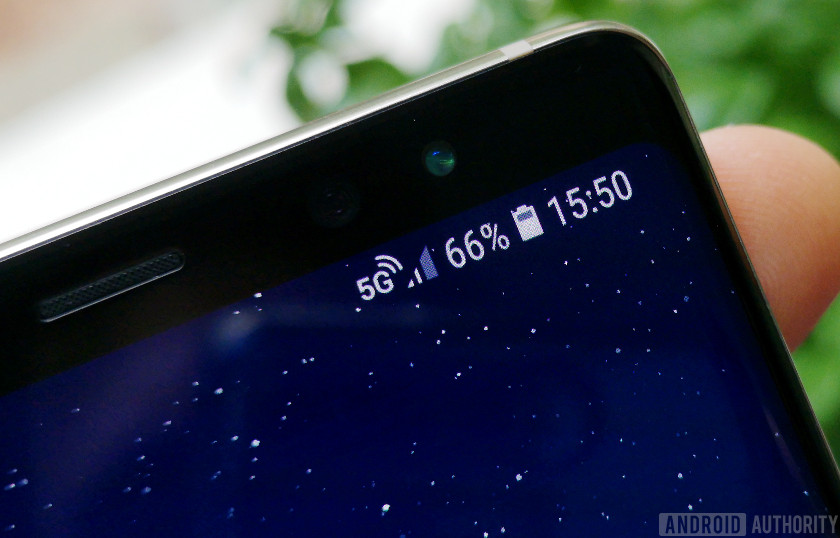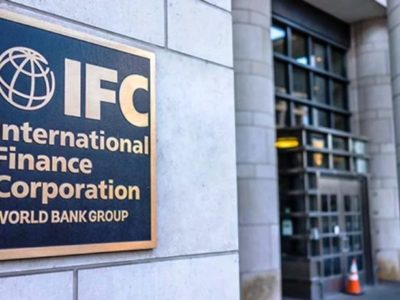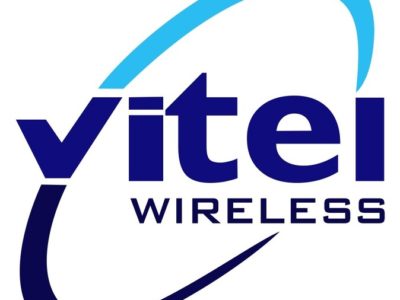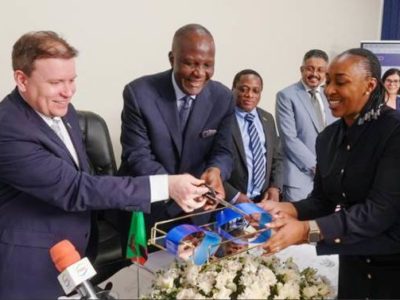Stakeholders across Nigeria’s telecoms sector, including Nigeria’s Minister of Communications and Digital Economy and Executive Vice Chairman of the Nigerian Communications (NCC), have charted way forward to see the fifth generation Network (5G) successfully deployed in Nigeria.
Converged by Business Metrics Nigeria at the second edition of Policy Implementation Assisted Forum (PAIFo) dedicated to Nigeria’s national policy on 5G, held on Thursday, the industry experts dissected the policy in relation to the theme of the forum: Ascertaining Full Readiness to make 5G Work in Nigeria.
RELATED 5G Smartphone Sales Overtake 4G Globally Fueled By Apple And Cheaper Android 5G Smartphones
Delivering keynote address at the forum, the Executive Vice Chairman of the Nigerian Communications Commission (NCC), Professor Umar Danbatta identified three stakeholders critical to ascertaining readiness in the telecommunications industry, especially as it relates to the uptake of anything new such as emerging IMT technologies like 5G (IMT 2020).
According to him, these stakeholders include Government (Policymakers), National Regulatory Authorities (Regulators), and the Network Operators.
Prof. Danbatta said: “These stakeholders must ensure the provision of robust government policies, excellent regulatory and operational efficiency as well as optimum network performance.”
The NCC boss who was represented by Joseph Emeshili, Principal Manager, Spectrum Administration Department of the NCC further reiterated that to achieve success in the uptake of any technology within any administration, Governments are required to put in place excellent policies that would foster development and provide adequate room for innovation.
“As policymakers, the government should foster a pro-investment and pro-innovation environment, it should also consider to undertake its own independent economic assessment of the commercial viability of deploying new technologies (such as 5G in this case) networks with a view to providing a clear regulatory path and to enable all relevant stakeholders including the network operators to make informed decisions,” added Danbatta.
He further explained that as a regulator, the commission has been at the forefront of formulating policies that will always enable emerging technologies such as 5G to thrive.
In his remarks, Minister of Communications and Digital Economy, Professor Isa Ali Ibrahim Pantami, said the 5G policy captures all the necessary information guiding the processes for the deployment of the technology in Nigeria.
“Some of these policies include the National Digital Economy Policy and Strategy (NDEPS) for Digital Nigeria, the Nigerian National Broadband Plan (NNBP 2020-2025) and the National policy for the promotion of Indigenous Content in the Nigeria Telecommunications sector,” said the minister. He was represented by Abraham Oshadami, Head of Spectrum Administration Department of the NCC.
Pantami noted that the 5G policy document aligns with other policies of government and will support their Implementation.
The National policy on 5G Networks for Nigeria’s Digital Economy addresses the provision of the required Spectrum and enabling environment for 5G deployment, he added.
“In summary, the 5G policy is designed to ensure effective deployment of 5G to cover major urban areas by 2025; ensure security of 5G Ecosystem and the protection of data; ensure that International best practices and globally accepted Standards and Specifications are entrenched Nigeria’s 5G ecosystem, and to ensure that the required Infrastructure needed for Successful deployment of the network such as data centres, power, etc are catered for in the deployment strategies of 5G Networks,” Pantami said.
Minister Pantami further ensured that his ministry and the NCC shall ensure that the requisite strategies, standards, guidelines and frameworks for the successful deployment of the 5G networks across the country are in place.
He said the NCC has also been directed to collaborate with relevant Institutions and Stakeholders in order to achieve objectives of the National 5G policy.
“No wonder this gathering is a very important part of the process for actualizing the success of the policy,” he said.
Similarly, the Director General of the National Information Technology Development Agency (NITDA), Kashifu Inuwa Abdullahi, acquainted the forum with various 5G use cases in Nigeria with a view to spurring investment appetite for the 5G technology.
Represented by Yau Isa Garba, National Director of the National Centre for Artificial Intelligence and Robotics (NCAIR), the NITDA boss delved deep into what the 5G technology is bringing to the table and its industry applications or use cases.
He explicitly explained that what the 5G technology include harnessing the power of Internet of Things (IoT); broadband-like mobile services; connectivity for edge computing; unleashing Artificial Intelligence (AI); and Immersive Gaming and Virtual Reality.
In application, he said 5G will find massive usage in healthcare, agriculture, education, manufacturing to lead to the fourth industrial revolution (4IR), logistics, modernized mining; and oil and gas operations
While the forum featured various presentations and panel discussions, the focus remained intact as experts from both private and public sectors meted out useful clues to help Nigeria build a sustainable 5G ecosystem.
Meanwhile, Omobayo Azeez, the publisher and editor of Business Metrics Nigeria and Lead Executive of the Policy Implementation Assisted Forum (PIAFo) stressed that the focus of the forum is to ensure that critical policies are brought to fruition through active dialogue and unrelenting evaluation.
“We believe there are two critical elements of nation building; politics is one, and policy is the other. The latter is as indispensable as the former. In other for us to walk the talk of every policy, we should at least first understand what that talk is in its entirety. This is the strategic role PIAFo is designed for,” Azeez said.































